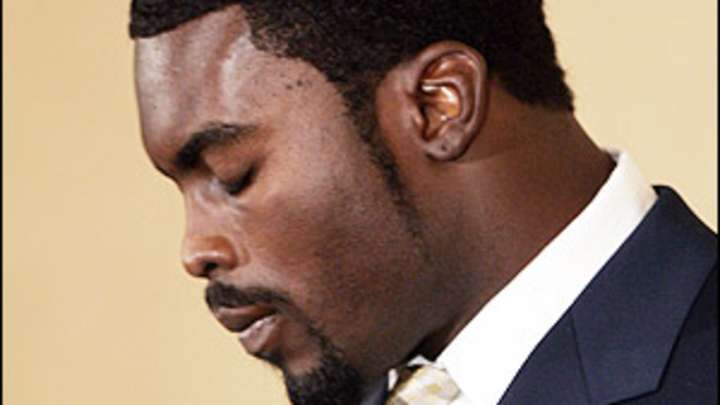The cold, hard truth


Think back to August, to the day Michael Vick went before the cameras after reaching a plea agreement with prosecutors on charges that he financed and participated in a dogfighting operation. He expressed remorse for what he had done and the many fans he had disappointed. Afterward, pundits remarked how Vick had been "forthcoming" and "honest" and "contrite." His supporters said he was accepting responsibility for his mistakes, the first step in rebuilding his image and life.
But behind the scenes, Vick was still dancing around the truth. He tried to avoid admitting that he killed dogs, and that evasiveness likely played a role in him getting a 23-month sentence, which exceeded the 12-to-18 months recommended by prosecutors.
In Monday's hearing, Assistant U.S. Attorney Michael Gill revealed that even after reaching his plea agreement, Vick "denied actually having hands-on involvement in the killing of dogs." He maintained that stance for weeks, claiming that co-conspirators Quanis Phillips and Purnell Peace hung and drowned the dogs.
But then Vick was given a polygraph on Oct. 12, administered by the FBI, and he was evasive when asked about his role in the killings. Near the end of the examination, as he was pressed on the issue, Vick reportedly said, "If you want me to admit it, I did it all. I did everything." Finally, he explained his role: "I carried a dog over to Phillips, who tied a rope around its neck. I dropped the dog."
It was a disturbing admission and, for federal Judge Henry Hudson, it took too long to come. Vick had to fail a lie detector test to finally admit he did more than stand by as his minions killed animals that didn't want to fight for them. Only then was he truly "forthcoming" and "honest" and "contrite."
"I'm not convinced you've fully accepted responsibility," Hudson told Vick on Monday before announcing his sentence.
One of the many lessons to be learned from the Vick saga is the proper way to navigate a disaster of this magnitude, which first and foremost must include a thorough admission of wrongdoing. Had Vick admitted the totality of his role to the Surrey County prosecutor in April, the federal government might never have gotten involved in the case and Vick would have probably skated by with only probation. Had he been the first to go the feds with details of Bad Newz Kennels' dealings, he likely would have received no worse than the 18 months Peace got. And had he truly been honest in August, had he admitted immediately how he had helped kill dogs, Hudson might have shaved a few months off his sentence.
Vick had three opportunities to come clean and he chose not to. It is silly that a 27-year-old millionaire didn't know the value of telling the truth -- most of us are taught that before enrolling in kindergarten. But Vick knows now, and he will have months in prison to let that lesson sink in.
Dogfighting proponents will offer a different lesson learned from the Vick case: if you participate in the bloodsport, it can ruin your life.
"The Vick case has had a transformative effect on the issue of dogfighting in America," Wayne Parcelle, president of the Humane Society of America, said in a statement. "Not only has Bad Newz Kennels been shut down, but there is a newfound awareness and resolve. There has been a tripling in arrests of dogfighters since the Vick case came to light."
It has always been difficult for the public to strike a balance between wanting to see Vick punished for his actions, while also recognizing his crimes fall short of what other athletes have done. After all, he didn't assault a woman or shoot a man. When those arguments are made now, and when Vick is portrayed once again as some kind of victim of a witch hunt by PETA or the HSUS, I hope his defenders include the most pertinent of facts:
Vick wasn't honest until he was forced to be honest. And liars deserve to be punished.
